Navigating the educational landscape can be challenging, especially when faced with specialized terminology. For students, teachers, and parents alike, understanding these terms is essential for effective communication and academic success. Whether you’re preparing for a new school year, helping with homework, or developing teaching strategies, knowing the lingo can make a significant difference. This blog post offers a detailed guide to the 50 most common education English terms.
Top 50 Common Education English Terms: Definitions and Examples
Each term is clearly defined, accompanied by phonetic transcription, and illustrated with practical examples. By familiarizing yourself with these key concepts, you’ll be better equipped to engage in educational discussions, understand academic materials, and support learning processes.
So, let’s dive into these essential terms and enhance your educational vocabulary!
#1. 📘 Syllabus
Definition: A syllabus (/ˈsɪl.ə.bəs/) is a document outlining the topics, objectives, and schedule for a course.
Examples:
- The syllabus for the course included a detailed schedule of lectures and assignments.
- Students should refer to the syllabus to keep track of important deadlines.
#2. 📚 Curriculum
Definition: A curriculum (/kəˈrɪk.jə.ləm/) is a set of courses and their content offered by an educational institution.
Examples:
- The school’s curriculum includes core subjects like math and science, along with electives.
- Teachers develop lesson plans based on the curriculum guidelines.
#3. 🏫 Pedagogy
Definition: Pedagogy (/ˈpɛd.əˌɡoʊ.dʒi/) is the method and practice of teaching.
Examples:
- Progressive pedagogy focuses on student-centered learning approaches.
- Effective pedagogy adapts to the needs of diverse learners in the classroom.
#4. ✏️ Assessment
Definition: An assessment (/əˈsɛs.mənt/) evaluates students’ knowledge, skills, or progress.
Examples:
- Formative assessments, like quizzes and class discussions, provide ongoing feedback.
- Summative assessments, such as final exams, evaluate overall learning at the end of a term.
#5. 🎓 Degree
Definition: A degree (/dɪˈɡriː/) is an academic qualification awarded by a college or university.
Examples:
- She received her bachelor’s degree in English Literature.
- Many graduate programs require a master’s degree for admission.
#6. 📝 Transcript
Definition: A transcript (/ˈtræn.skrɪpt/) is a detailed record of a student’s academic performance.
Examples:
- The admissions office requested an official transcript from her previous school.
- Transcripts include grades, courses completed, and honors received.
#7. 📖 Textbook
Definition: A textbook (/ˈtɛksˌbʊk/) is a book used as a standard source of information in a particular subject.
Examples:
- The history textbook covers events from ancient civilizations to modern times.
- Students were required to purchase the textbook for the chemistry course.
#8. 📊 Evaluation
Definition: Evaluation (/ˌiː.vælˈjuː.eɪ.ʃən/) is the process of assessing the effectiveness of a program or teaching method.
Examples:
- Annual evaluations help improve teaching practices and student outcomes.
- The program’s evaluation showed significant improvements in student engagement.
#9. 📅 Semester
Definition: A semester (/səˈmɛs.tər/) is an academic term typically lasting around 15-18 weeks.
Examples:
- The academic year is divided into two semesters: fall and spring.
- Students register for courses each semester based on their academic plan.
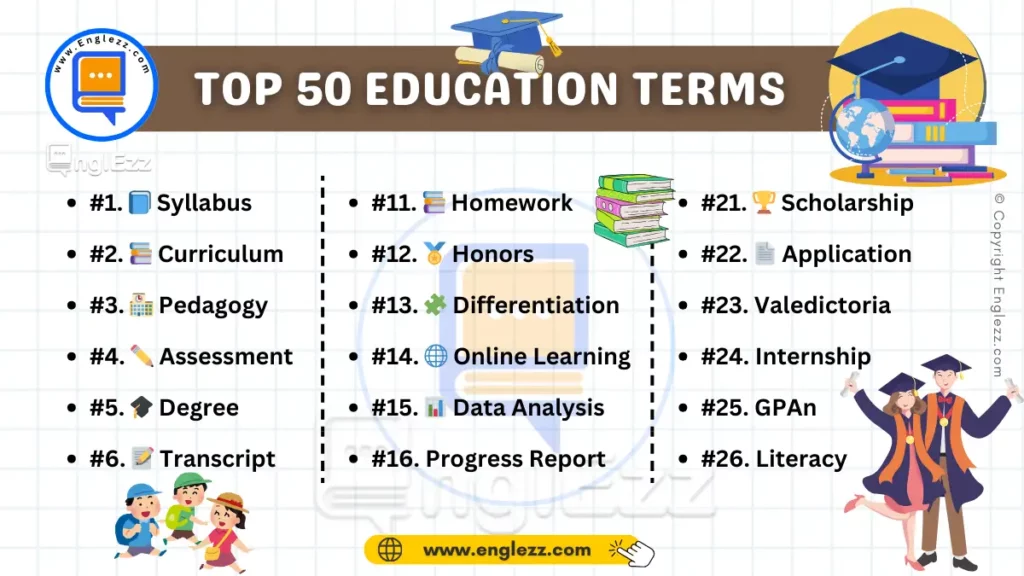
#10. 🎒 Extracurricular
Definition: Extracurricular (/ˌɛk.strə.kəˈrɪk.jʊ.lər/) activities are those outside the standard curriculum, such as sports or clubs.
Examples:
- Participation in extracurricular activities like debate club enhances a student’s leadership skills.
- Many universities look for extracurricular involvement on applications.
#11. 📚 Homework
Definition: Homework (/ˈhoʊm.wɝːk/) refers to assignments given by teachers to be completed outside of class.
Examples:
- The teacher assigned reading and a written report as homework for the weekend.
- Regular homework helps reinforce concepts learned in class.
#12. 🏅 Honors
Definition: Honors (/ˈɑː.nɚz/) are distinctions awarded for academic excellence.
Examples:
- She graduated with honors in biology due to her outstanding academic performance.
- The honors program offers advanced coursework and research opportunities.
#13. 🧩 Differentiation
Definition: Differentiation (/ˌdɪf.əˌrɛn.ʃiˈeɪ.ʃən/) is tailoring instruction to meet diverse learners’ needs.
Examples:
- Teachers use differentiation to provide various learning activities suited to different skill levels.
- Differentiation strategies may include modified assignments and varied teaching methods.
#14. 🌐 Online Learning
Definition: Online learning (/ˈɒn.laɪn ˈlɜː.nɪŋ/) involves educational activities conducted via the internet.
Examples:
- Online learning platforms offer courses in a variety of subjects accessible from anywhere.
- Many schools have incorporated online learning tools to complement traditional classroom instruction.
#15. 📊 Data Analysis
Definition: Data analysis (/ˈdeɪ.tə əˈnæl.ɪ.sɪs/) is the process of examining data to draw conclusions about student performance.
Examples:
- Teachers use data analysis to track student progress and identify areas needing improvement.
- Data analysis helps schools make informed decisions about curriculum and teaching strategies.
#16. 📈 Progress Report
Definition: A progress report (/ˈprɒɡ.rəs rɪˈpɔːrt/) provides an update on a student’s academic progress.
Examples:
- Parents receive progress reports quarterly to stay informed about their child’s performance.
- Teachers use progress reports to communicate students‘ strengths and areas for improvement.
#17. 📒 Workbook
Definition: A workbook (/ˈwɜːrkˌbʊk/) is a book containing exercises and activities for practice.
Examples:
- Students use workbooks to complete practice problems and reinforce lessons.
- The workbook provides exercises that complement the concepts taught in the textbook.
#18. 📉 Dropout Rate
Definition: Dropout rate (/ˈdrɒp.aʊt reɪt/) is the percentage of students who leave school before completing their education.
Examples:
- Schools aim to reduce the dropout rate through targeted support programs.
- The dropout rate is an important metric for evaluating educational success.
#19. 🎥 Lecture
Definition: A lecture (/ˈlɛk.tʃər/) is a formal presentation given by a teacher or professor on a specific topic.
Examples:
- The professor delivered a lecture on the fundamentals of quantum mechanics.
- Lectures are often supplemented with readings and discussions.
#20. 📚 Resource
Definition: A resource (/ˈriː.sɔːrs/) is any tool or material used to support learning.
Examples:
- Textbooks, online articles, and educational videos are valuable resources for students.
- Teachers provide additional resources to help students grasp complex topics.
#21. 🏆 Scholarship
Definition: A scholarship (/ˈskɒl.əʃɪp/) is financial aid awarded to students based on academic achievement or need.
Examples:
- She received a scholarship for her exceptional performance in mathematics.
- Scholarships can cover tuition, books, and other educational expenses.
#22. 📄 Application
Definition: An application (/ˌæplɪˈkeɪʃən/) is a formal request for admission or financial aid.
Examples:
- The college application includes personal information, essays, and recommendation letters.
- Applications for scholarships often require a detailed personal statement and academic records.
#23. 🌟 GPA
Definition: GPA (Grade Point Average) (/ˌɡiː.piːˈeɪ/) is a numerical representation of a student’s average performance.
Examples:
- A high GPA can enhance a student’s chances of receiving academic honors or scholarships.
- Colleges often consider GPA as a key factor in admissions decisions.
#24. 💼 Internship
Definition: An internship (/ˈɪn.tɜːrn.ʃɪp/) is a temporary position offering practical experience in a specific field.
Examples:
- The student completed an internship at a local engineering firm to gain hands-on experience.
- Internships can provide valuable skills and networking opportunities.
#25. 🏅 Valedictorian
Definition: A valedictorian (/ˌvæl.ə.dɪkˈtɔːr.i.ən/) is the top-ranking student in a graduating class, often giving the graduation speech.
Examples:
- The valedictorian delivered an inspiring speech about the journey through school.
- Being named valedictorian is a significant academic achievement.
#26. 🧠 Cognitive Development
Definition: Cognitive development (/ˈkɒɡ.nə.tɪv dɪˈvɛl.əp.mənt/) refers to the growth of intellectual abilities and thinking skills.
Examples:
- Cognitive development theories explain how children learn and process information.
- Early education focuses on enhancing cognitive development through activities that stimulate thinking.
#27. 🏫 Classroom Management
Definition: Classroom management (/ˈklæs.ruːm ˈmænɪdʒ.mənt/) involves techniques used to maintain a productive learning environment.
Examples:
- Effective classroom management strategies include setting clear rules and expectations.
- Teachers use various methods to handle disruptions and engage students in learning.
#28. 📖 Literacy
Definition: Literacy (/ˈlɪt.ər.ə.si/) is the ability to read and write effectively.
Examples:
- Literacy programs aim to improve reading and writing skills among adults.
- Early literacy development is crucial for academic success and lifelong learning.
#29. 📆 Calendar
Definition: A calendar (/ˈkæl.ɪn.dər/) is a system for organizing and scheduling academic dates and events.
Examples:
- The academic calendar includes important dates such as holidays, exams, and breaks.
- Teachers use the calendar to plan lessons and track student progress.
#30. 🧩 Inclusive Education
Definition: Inclusive education (/ɪnˈkluː.sɪv ˌɛdʒʊˈkeɪ.ʃən/) is an approach where all students, regardless of their abilities, learn together.
Examples:
- Inclusive education ensures students with disabilities receive the support they need within regular classrooms.
- Schools implement strategies to accommodate diverse learning needs and promote equality.
#31. 🏆 Achievement
Definition: Achievement (/əˈtʃiːv.mənt/) is the accomplishment of goals or objectives, particularly in academic contexts.
Examples:
- Academic achievements are often recognized with awards and certificates.
- Setting and reaching personal goals is a key component of student success.
#32. 📋 Portfolio
Definition: A portfolio (/pɔːrtˈfoʊ.li.oʊ/) is a collection of a student’s work showcasing their skills and progress.
Examples:
- Students create portfolios to document their achievements and reflect on their learning journey.
- Portfolios are often used in art and design courses to display creative projects.
#33. 🧑🏫 Mentorship
Definition: Mentorship (/ˈmɛn.tɔːr.ʃɪp/) involves guidance provided by a more experienced individual to support a learner’s development.
Examples:
- A mentor provides career advice and academic support to a student.
- Mentorship programs pair experienced professionals with students to foster growth and development.
#34. 🗂 Module
Definition: A module (/ˈmɒd.juːl/) is a self-contained unit of study or instruction.
Examples:
- The course is divided into modules, each focusing on a specific topic or skill.
- Modules allow students to progress through the material in manageable sections.
#35. 📝 Assignment
Definition: An assignment (/əˈsaɪnmənt/) is a task or project given to students to complete within a certain timeframe.
Examples:
- The professor assigned a research paper due at the end of the semester.
- Assignments help students apply and demonstrate their understanding of the course material.
#36. 🌍 Global Education
Definition: Global education (/ˈɡloʊ.bəl ˌɛdʒʊˈkeɪ.ʃən/) focuses on understanding global issues and promoting international awareness.
Examples:
- Global education programs often include topics like world cultures and international relations.
- Schools incorporate global education to prepare students for a diverse and interconnected world.
#37. 🧠 Critical Thinking
Definition: Critical thinking (/ˈkrɪtɪkəl ˈθɪŋkɪŋ/) involves analyzing and evaluating information to make reasoned judgments.
Examples:
- Critical thinking skills are developed through analyzing case studies and debating various viewpoints.
- Teachers encourage critical thinking by asking open-ended questions and promoting discussion.
#38. 🌐 International Baccalaureate
Definition: The International Baccalaureate (IB) (/ˌɪn.təˈnæʃ.ən.əl ˈbæk.ə.lɔː.reɪt/) is a global educational program offering challenging coursework.
Examples:
- The IB program is known for its rigorous academic standards and global perspective.
- Students in the IB program complete a range of subjects and a research project.
#39. 🧾 Certification
Definition: Certification (/ˌsɜːr.tɪ.fɪˈkeɪ.ʃən/) is an official document proving a person’s qualifications or proficiency.
Examples:
- Teachers may receive certification to teach specific subjects or grade levels.
- Certification programs provide professional development and validate expertise in a field.
#40. 📚 Text Analysis
Definition: Text analysis (/tɛkst əˈnæl.ɪ.sɪs/) involves examining written content to understand its meaning and structure.
Examples:
- Text analysis helps students interpret literary works and evaluate author intent.
- Teachers use text analysis to assess comprehension and critical reading skills.
#41. 📜 Diploma
Definition: A diploma (/dɪˈploʊ.mə/) is a certificate awarded upon completing a course of study or graduation.
Examples:
- She received her diploma in engineering after successfully completing the program.
- Diplomas are often displayed as a sign of academic achievement.
#42. 📅 Calendar Year
Definition: The calendar year (/ˈkæl.ɪn.dər jɪər/) is the period from January 1 to December 31.
Examples:
- The academic calendar year may differ from the calendar year, with terms running from August to May.
- Events scheduled within the calendar year include holidays, exams, and breaks.
#43. 📚 Learning Objectives
Definition: Learning objectives (/ˈlɜːrnɪŋ ɒbˈdʒɛk.tɪvz/) are specific goals outlining what students should achieve by the end of a course.
Examples:
- The learning objectives for the course include mastering advanced algebraic concepts.
- Teachers set clear learning objectives to guide lesson planning and assessment.
#44. 📓 Reading Comprehension
Definition: Reading comprehension (/ˈriː.dɪŋ ˌkɒmprɪˈhɛn.ʃən/) is the ability to understand and interpret written text.
Examples:
- Reading comprehension exercises help students analyze and summarize texts.
- Teachers assess reading comprehension through quizzes and discussion questions.
#45. 🔍 Research
Definition: Research (/ˈriː.sɜːrtʃ/) is the process of investigating and studying information to discover new knowledge.
Examples:
- Students conduct research for their science projects, gathering data and analyzing results.
- Research skills are essential for writing academic papers and developing new ideas.
#46. 🎓 Graduation
Definition: Graduation (/ˌɡrædʒ.uˈeɪ.ʃən/) is the ceremony marking the completion of a degree or course of study.
Examples:
- The graduation ceremony celebrated students’ achievements and awarded diplomas.
- Graduation marks the culmination of years of hard work and academic dedication.
#47. 📚 Study Guide
Definition: A study guide (/ˈstʌd.i ɡaɪd/) is a tool that helps students review and prepare for exams.
Examples:
- The study guide included key concepts, practice questions, and summary notes.
- Students use study guides to focus their review sessions and improve exam performance.
#48. 🔬 Lab Report
Definition: A lab report (/læb rɪˈpɔːrt/) documents the process and results of an experiment or scientific investigation.
Examples:
- The lab report included an introduction, methodology, results, and conclusion.
- Writing a lab report helps students communicate their findings and understand scientific methods.
#49. 📖 Annotation
Definition: Annotation (/ˌænəˈteɪ.ʃən/) is the practice of adding notes or comments to a text for clarification or analysis.
Examples:
- Students annotate their textbooks to highlight important information and make notes.
- Annotations help with studying by providing context and explanations for key concepts.
#50. 🧩 Engagement
Definition: Engagement (/ɪnˈɡeɪdʒ.mənt/) refers to the level of interest and participation a student shows in learning activities.
Examples:
- High student engagement is often linked to better academic performance and enthusiasm.
- Teachers use interactive activities and discussions to increase student engagement.
Education English Terms Table
| #1. 📘 Syllabus | #11. 📚 Homework | #21. 🏆 Scholarship |
| #2. 📚 Curriculum | #12. 🏅 Honors | #22. 📄 Application |
| #3. 🏫 Pedagogy | #13. 🧩 Differentiation | #23. 🌟 GPA |
| #4. ✏️ Assessment | #14. 🌐 Online Learning | #24. 💼 Internship |
| #5. 🎓 Degree | #15. 📊 Data Analysis | #25. 🏅 Valedictorian |
| #6. 📝 Transcript | #16. 📈 Progress Report | #26. 🧠 Cognitive Development |
| #7. 📖 Textbook | #17. 📒 Workbook | #27. 🏫 Classroom Management |
| #8. 📊 Evaluation | #18. 📉 Dropout Rate | #28. 📖 Literacy |
| #9. 📅 Semester | #19. 🎥 Lecture | #29. 📆 Calendar |
| #10. 🎒 Extracurricular | #20. 📚 Resource | #30. 🧩 Inclusive Education |
Conclusion
Understanding and mastering educational terminology is essential for anyone involved in the learning process. From “syllabus” and “curriculum” to “engagement” and “annotation,” these 50 terms provide a foundational vocabulary that enhances communication and comprehension in educational settings.
Whether you’re a student aiming to excel, a teacher striving for effective instruction, or a parent supporting your child’s education, knowing these terms can make a significant difference. As you continue to explore and apply these concepts, you’ll find that they become integral to navigating the world of education with greater confidence and effectiveness.
Keep this guide handy as a reference, and remember that a strong grasp of educational language is a powerful tool for success in academic endeavors. 🌟

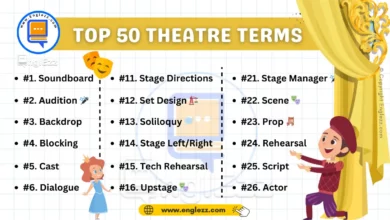
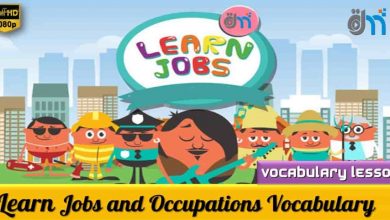
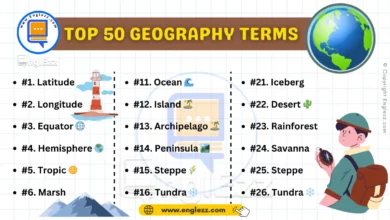

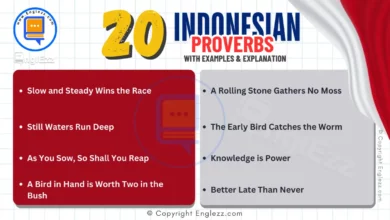
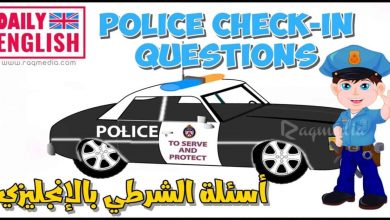
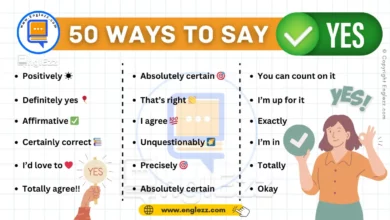
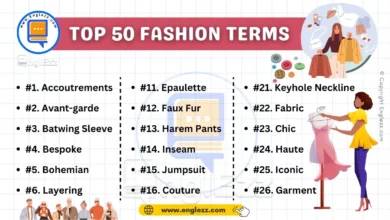
Discover Essential Education Terms! 🎓
Unlock the secrets of the educational world with our comprehensive guide to 50 must-know English terms. Perfect for students, teachers, and parents, this list will help you navigate academic conversations with ease.
Dive into the definitions, examples, and phonetic transcriptions, and don’t forget to follow @EnglEzz for more insightful content.
Like and share to help others enhance their educational vocabulary too! Explore now:
.
https://www.englezz.com/common-education-english-terms/
.
#EnglEzz #vocabulary #linguistics #education #academic #learning #students #teaching #educationterms